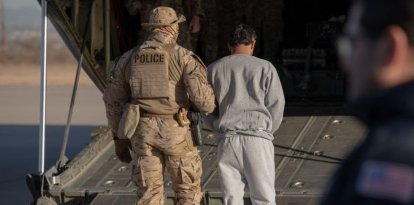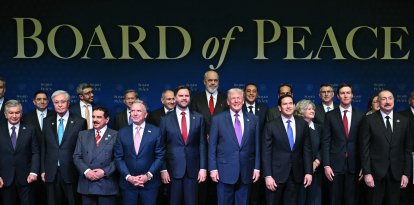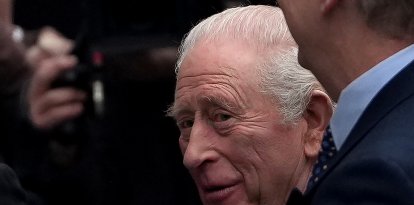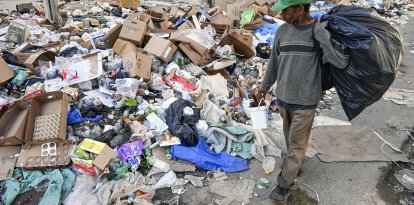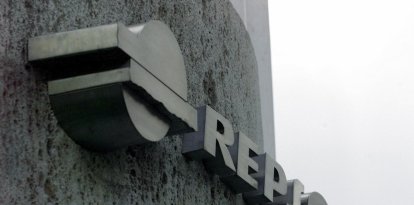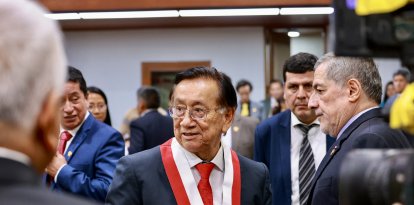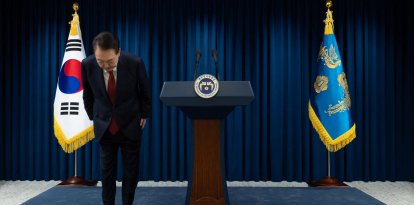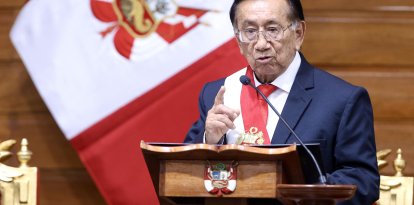Mexico: President López Obrador dubs New York Times "filthy tabloid" for linking his 2018 campaign to drug trafficking
The Mexican president attacked the newspaper's correspondent Natalie Kitroeff, giving out her telephone number and a questionnaire sent to AMLO's press team.

El presidente mexicano Andrés Manuel López Obrador, también conocido como AMLO. (Cordon Press)
Mexican President Andrés Manuel López Obrador (AMLO) caused an uproar today during his usual morning conference by exposing the personal phone number and questionnaire of New York Times journalist Natalie Kitroeff, who serves as the newspaper's bureau chief in Mexico.
AMLO, who called the NYT a "filthy rag," made the attack because the paper investigated the president's 2018 presidential campaign's alleged ties to drug trafficking.
In a communications move, the president pre-empted the NYT's "scoop" by denying the story and attacking the newspaper's credibility.
During "La Mañanera," as the president's morning conferences are known, AMLO mentioned the interview he gave to leftist Russian journalist Inna Afinogenova and how now, in a "threatening" tone, he received a questionnaire from the New York Times in retaliation to clarify an investigation based on information from the DEA.
The NYT report hints that the Sinaloa Cartel and the Zetas Cartel paid bribes to AMLO's 2018 campaign, at least according to a DEA investigation.
The report, published Thursday after AMLO's attack, refers to the DEA investigating López Obrador's children and members of his inner circle for allegedly receiving millions of dollars from members of organized crime. However, the United States only investigated the DEA informants' allegations and decided not to investigate the president of an allied country any further.
The deadline given to the Mexican president to respond to the NYT's questions was Wednesday, February 21, by 5:00 pm. AMLO, instead of responding privately, vehemently attacked the NYT following the request for comment the following morning.
"The New York Times correspondent sends Jesus a questionnaire, but in a threatening, arrogant tone (...), letting us know that they are doing an investigation with information from the DEA where people linked to me received money, no longer in 2006, but in 2018," said the president of Mexico without closing the idea, leaving an ambiguous explanation of the report.
"In the report, they say there is no concise evidence. They are based on informants, but they do not give names. I think this article is worse than ProPublica's," said the president, who also criticized U.S. institutions for investigating his government since the investigation is based on the 2018 campaign, but also sometime later when he was already in power.
"What rights do they have to investigate a legitimately formed government?" asked the president, "Are they the government of the world?"
AMLO also said that relations with the United States would not be broken because of the situation, but he said he would ask the Biden administration to explain the reasoning behind the DEA investigation.
Regarding the NYT, AMLO was even harsher: "It is a disgrace, there is no doubt that this type of journalism is in clear decline."
In addition to the critical words against the media outlet, AMLO gave out Kitroeff's private data, a fact that was denounced by the National Institute of Transparency, Access to Information and Protection of Personal Data (INAI), which opened an ex officio investigation against the head of state for doxxing.
The New York Times published a statement condemning AMLO's tactics.
"This is a troubling and unacceptable tactic from a world leader at a time when threats against journalists are on the rise," the Times responded.
Why did AMLO pre-empt the NYT report?
In an interview with Voz Media, Gerardo Garibay, Mexican author and political analyst, explained why the Mexican president decided, in an unconventional communication move, to pre-empt the publication of the NYT report.
"It seems to me that, beyond whether or not we like his public policies, López Obrador is an extremely skillful guy, and by going ahead of the New York Times in a way, let's say, not very diplomatic, he did manage to reduce the impact of the statement," said Garibay, who later clarified: "However, in spite of killing the scoop for the New York Times, he is also playing a very dangerous game because with this precedent any other international newspaper will have all the arguments to consider that it is not wise to give López Obrador prior notice of further investigations."
Garibay, in addition to referring to the NYT episode, also explained all the problems surrounding the accusations against AMLO and his links to drug trafficking.
"In Mexico, the New York Times investigations were taken by the opposition as a kind of confirmation of a suspicion and an accusation that has been floating around for several years now about possible links between the president and organized crime," Garibay told Voz Media. "Although there are many cases in the country, particularly at the local and state level of authorities who have been directly involved with the cartels, at the federal level, there have never been such direct accusations as the ones we are seeing in recent months."
"However, at least to date, the accusations continue to be based on informant testimonies," qualified the analyst, who considers that, for the moment, "there is still no concrete proof as such, and the NYT report itself published today emphasizes this, that there is no proven link between President López Obrador and organized crime, even though the report itself mentions accusations of people who received money on behalf of the president."
"The fact that a person goes and collects money in exchange for an alleged presidential favor does not automatically mean that the president is aware of it or that the president is going to comply with that favor," the analyst concluded.
















